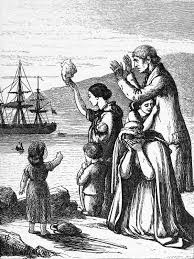Greetings. I have been gone a long time and I did not intend to come back now, but a weird thing happened. Just before covid struck, I had finished two posts; when I decided to bow out for a while, I reset them for a month later than their original posting date. Then again, then again, as the year rolled on.
Then something else weird happened. WordPress completely changed the way posts have to be written. I opened it up one day and couldn’t make heads or tails of what was on the screen. Clearly I had to completely relearn their system, but there was no hurry, since I didn’t plan to post for a couple more months.
Then this morning, I saw that I had posted yesterday. My pushing the dates forward on those two old posts had caught up to me. Since I don’t really know how to post in the new fashion, and the other old post (this one) is scheduled out in three hours, I decided to just add this explanation and let things go. I don’t even know if these paragraphs will be added to the Dry Oklahoma post.
If you don’t see this information, ignore it.
=========================
I grew up during prohibition.
If you are mathematically challenged or historically challenged, that statement might seem possible. Otherwise, you have already calculated that this statement makes me over a hundred years old, which I’m not.
A lie? No, the twenty-first amendment did not end prohibition everywhere. States had the option of continuing it, and Oklahoma did until 1959 when the consumption of alcohol was made legal, but only under stringent conditions. For two and half decades, the Kansas-Oklahoma border was the starting line of a nightly race between bootleggers and the Highway Patrol.
That’s all behind us, right? Not quite. Today the Kansas-Colorado border straddles pot highways, but this time the product is flowing into Kansas. The history of Oklahoma as a dry state in a wet nation might be useful in 2020.
As for my tiny part in the story, when I was five years old our house was fifty feet from Highway 169 which ran from Coffeeville, Kansas down to Tulsa. As I watched the cars go by, many of them were carrying booze for personal consumption, and some of them were carrying booze in bulk for resale. Tales of high speed chases and big busts were common.
There was no checkpoint at the border. Bootlegging was as simple as buying a bottle of whiskey legally in Coffeeville, driving home, and drinking it illegally in your living room. And there were plenty of bootleggers who were willing to save you the trip, for a profit.
Oklahoma was dry. Okies weren’t. Local humorist Will Rogers said that Okies would vote dry as long as they could stagger to the polls.
All this started before statehood and continued until 1959. When national prohibition came along in 1919 with the eighteenth amendment, it only cut off the source of liquor from surrounding states.
During national prohibition no one in America got all that thirsty. There were always stills, along with mass smuggling from Canada and Mexico, and rumrunners on all three coasts. From 1919 to 1933, America was dry, but Americans weren’t. With the advent of the twenty-first amendment, the rest of America could legally drink again. Okies could not, but it didn’t even slow them down.
Actually a few other states also remained dry. Mississippi was dry longer than Oklahoma, and many counties remain dry or moist today. Moist means consumption is legal but only under severe restrictions.
Consumption of alcohol finally became legal in Oklahoma in 1959, fifty-two years after statehood, but only with great restrictions. For example, you could buy beer, but only with 3.2% alcohol or less, and only at room temperature. Cold beer could not be sold. The idea was that you had to take it home to refrigerate it, and then consume it in the shameful privacy of your own house.
So what does this have to do with pot in 2020?
Beyond the obvious issue of people from Kansas having to drive to Colorado to get pot, and bringing it home illegally, there is the issue of why prohibitions get overturned, and how wide is the overturn.
People in Oklahoma were convinced to overturn dry laws in part because of all the tax revenues they felt they were losing and because the cost of enforcement. That should sound quite contemporary.
Of course there was a lot of home brew being made and a lot of stills that went right on selling their wares after 1959 so drinkers could avoid the booze taxes.
The snarky part of me also wants to wonder if the booze tax revenue after 1959 in Oklahoma made up for the gas tax revenue that all those bootleggers were paying, but never mind . . .
In a similar way, there is still a thriving business in illegal pot in California today, causing disappointing tax returns on legal pot. What a shocker! Remember all those million dollar busts of pot in the old days? That was based on street prices. Once pot becomes legal, the street price goes down. Legal pot sales go up, but they never match those old inflated revenues. No problem, raise the pot tax. But then people go back to buying illegal pot, because it is cheaper.
Funny how politicians never think of that until it happens.
Also, to say that pot is legal in California is not quite true. It can still be made illegal county by county and city by city. In Calaveras County, near where I live, it is currently illegal to cultivate pot, illegal to manufacture (which I assume means process) it, but legal to sell it retail. There was a recent battle to change the local laws, with billboards for and against. The argument against was “keep out crime”. The argument for was “tax revenue”.
This should all seem familiar.










